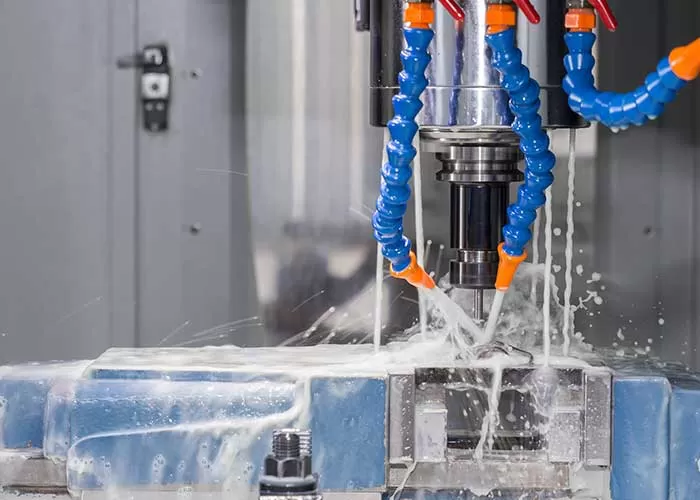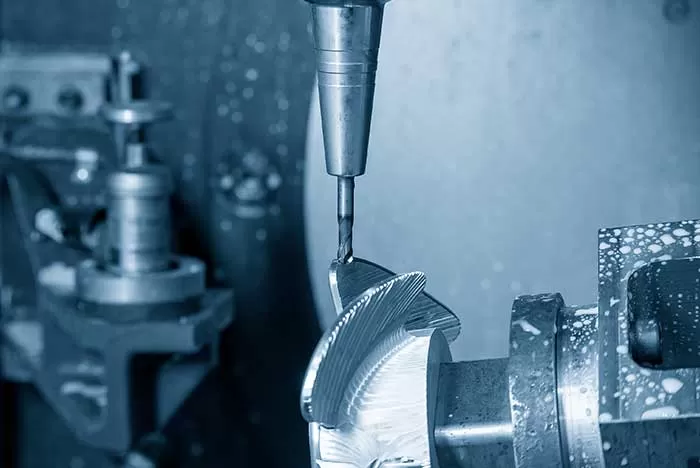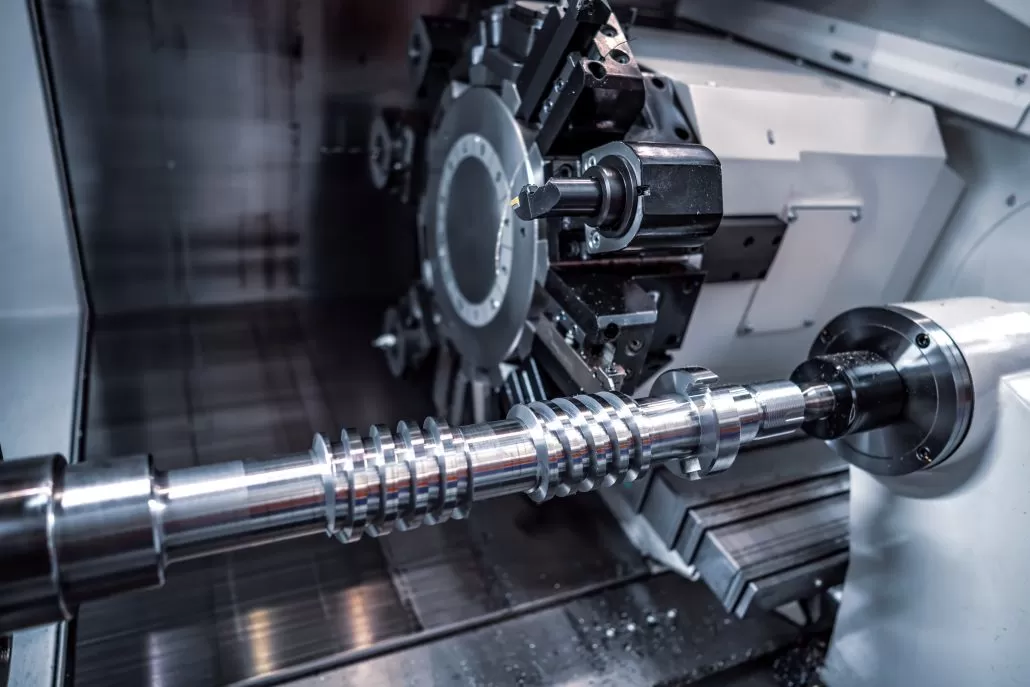Aluminum 6061 and 7075 are two commonly used high-strength aluminum alloy materials in precision CNC machining. They play an important role in numerous industries. Aluminum 6061 is widely used in fields such as aerospace, automotive manufacturing, construction, and electronic equipment. Aluminum 7075 is commonly used in fields such as aerospace, national defense, sports equipment, and automotive racing due to its excellent strength and corrosion resistance.
In this article, we will focus on the corrosion resistance of two commonly used materials, aluminum 6061 and 7075. Whether you are a manufacturer or a reader interested in materials, this article will provide you with valuable information. Let’s get started!
Corrosion resistance of aluminum 6061
Aluminum 6061 can exhibit good corrosion resistance under various environmental conditions, including humid climates, seawater, and many chemical media. Moreover, aluminum 6061 can withstand high temperature environments, making it an ideal choice for many applications.

Chemical composition of aluminum 6061
Chemical Composition of Aluminum 6061 Table:
| Element | Chemical Composition (Weight Percentage) |
|---|---|
| Aluminum (Al) | 97.9% |
| Silicon (Si) | 0.6% |
| Magnesium (Mg) | 1.0% |
| Copper (Cu) | 0.28% |
| Manganese (Mn) | 0.15% |
| Chromium (Cr) | 0.15% |
| Zinc (Zn) | 0.10% |
| Titanium (Ti) | 0.10% |
| Others (e.g., trace impurities) | 0.15% |
Analysis of corrosion resistance performance
Aluminum 6061 has excellent corrosion resistance due to its chemical composition and special lattice structure. The following is an analysis of its corrosion resistance performance:
1.Passive layer formation ability
Aluminum 6061 has a high passive layer formation ability, that is, it can form a stable oxide layer on its surface. This oxide layer is a natural protective layer that can prevent further corrosion and erosion.
2.Oxidation resistance
Aluminum 6061 has good oxidation resistance, which means it is less prone to surface oxidation and corrosion in an oxidizing environment. This enables it to maintain a good Surface states in humid climates and oxidizing media.
3.Alkali resistance
Aluminum 6061 exhibits good alkali resistance and has a certain tolerance to alkaline environments. This gives it reliable corrosion resistance in certain chemical treatment and industrial environments.
4.Electrochemical behavior
Aluminum 6061 exhibits superior performance in electrochemical behavior, with a lower self corrosion rate and correction potential. This means that it can resist corrosion erosion from electrochemical reactions and has a longer service life.

Corrosion resistance of aluminum 7075
The corrosion resistance of aluminum 7075 is slightly inferior to that of aluminum 6061. Aluminum 7075 is mainly composed of aluminum, zinc, and copper. Although it has good mechanical properties, it may be affected in certain corrosive environments
Chemical composition of aluminum 7075
Chemical Composition of Aluminum 7075 Table:
| Element | Chemical Composition (Weight Percentage) |
|---|---|
| Aluminum (Al) | 90.7% |
| Zinc (Zn) | 5.6% |
| Magnesium (Mg) | 2.5% |
| Copper (Cu) | 1.6% |
| Chromium (Cr) | 0.23% |
| Others (e.g., trace impurities) | 0.27% |
Analysis of corrosion resistance performance
Aluminum 7075, as a high-strength aluminum alloy, is widely used in various industries. The following is an analysis of its corrosion resistance performance:
1.High corrosion resistance alloy composition
The element content in aluminum 7075 alloy is crucial for its corrosion resistance performance. High purity aluminum (Al), as the basic component, interacts with zinc (Zn), copper (Cu), and a small amount of other alloy elements to form an alloy structure with excellent corrosion resistance.
2.Rapid oxidation layer formation
The surface of aluminum 7075 alloy will quickly form a dense oxide layer. This oxide layer can effectively block further penetration of corrosive media and can self repair after damage. It provides a long-lasting protective layer that protects aluminum 7075 from corrosion.
3.High potential and self corrosion inhibition
Aluminum 7075 has a relatively high potential, allowing it to have a lower self corrosion rate in corrosive environments. This means that it can better resist corrosion and erosion from electrochemical reactions, thereby extending its service life.
4.Excellent alkali resistance
Aluminum 7075 exhibits excellent corrosion resistance in alkaline media. It can resist alkaline solutions and environmental erosion on its surface, thus exhibiting reliable corrosion resistance in certain chemical treatments and industrial environments.
Aluminum 6061 vs. 7075: Comparison of Corrosion Resistance
Based on the above information, you have gained a certain understanding of the corrosion resistance of aluminum 6061 and 7075. Next, we will compare aluminum 6061 and 7075 in detail. Understanding their corrosion resistance enables the correct selection of materials suitable for specific applications in the project.
Comparison of corrosion resistance performance
Aluminum 6061 can form a stable oxide layer in an oxidizing environment, effectively preventing further corrosion and erosion. In addition, aluminum 6061 also has a lower self corrosion rate and can resist corrosion caused by electrochemical reactions.
Compared with aluminum 6061, aluminum 7075 has the ability to quickly form a dense oxide layer, which effectively protects the aluminum surface from corrosion and erosion. In addition, aluminum 7075 also has a lower self corrosion rate and higher potential, which enables it to better resist corrosion erosion from electrochemical reactions.
| Corrosion Resistance Indicator | Aluminum 6061 | Aluminum 7075 |
|---|---|---|
| Passive Layer Formation | Good | Excellent |
| Oxide Layer Stability | Good | Excellent |
| Self-Corrosion Rate | 0.01 – 0.05 mm/year | 0.005 – 0.03 mm/year |
| Potential Difference | -0.6 V – -0.7 V | -0.55 V – -0.6 V |
| Acid Resistance | Fair | Good |
| Alkali Resistance | Fair | Good |
| Saltwater Corrosion Resistance | Fair | Excellent |
| Chemical Media Resistance | Fair | Excellent |
| Seawater Corrosion Resistance | Fair | Excellent |
Comparison of other important factors
In addition to corrosion resistance, there are also some comparisons between aluminum 6061 and aluminum 7075 in other important factors:
Strength
Aluminum 7075 has higher strength, especially tensile strength, than aluminum 6061. This makes aluminum 7075 more suitable for applications that require high stress and load, such as aerospace and automotive racing.

Density
Aluminum 6061 and aluminum 7075 have very similar densities and are both lightweight metals. This gives them advantages in applications that require weight reduction, such as aerospace, automobiles, and sports equipment.
Machinability
Aluminum 6061 has good machinability and is easy to cut and form. In contrast, aluminum 7075 may require higher-level equipment and processes due to its high hardness and strength, making it difficult to process.
Cost
Generally speaking, aluminum 6061 has a lower cost and is relatively easier to obtain and process. Aluminum 7075 is more commonly used in special applications that require high strength and corrosion resistance due to its excellent performance and relatively high cost.
Application field
Aluminum 6061 is widely used in fields such as aerospace, automotive manufacturing, construction, and electronic equipment, suitable for general strength and corrosion environmental requirements. Aluminum 7075 is commonly used in fields such as aerospace, national defense, sports equipment, and automotive racing, and is used in applications with higher requirements for strength and corrosion resistance.
| Key Factor | Aluminum 6061 | Aluminum 7075 |
|---|---|---|
| Strength | 240 – 290 MPa | 570 – 600 MPa |
| Tensile Strength | 310 – 330 MPa | 570 – 620 MPa |
| Yield Strength | 230 – 280 MPa | 480 – 520 MPa |
| Density | 2.70 g/cm³ | 2.80 g/cm³ |
| Machinability | Good | Relatively Poor |
| Cost | Relatively Low | Relatively High |
| Main Applications | Aerospace, Automotive, Construction | Aerospace, Defense, Racing |

comparative analysis
Aluminum 6061 and 7075 exhibit excellent corrosion resistance, but there are slight differences in specific aspects. Aluminum 6061 performs well in general corrosive environments, while aluminum 7075 is more durable in harsh corrosive environments. The selection of suitable materials should be comprehensively considered based on specific application needs and corrosion environment requirements
Application requirements considerations:
Strength requirements: Aluminum 7075 has higher strength and is suitable for applications that can withstand high stress and loads.
Lightweight requirements: Aluminum 6061 can provide lighter weight at relatively low strength.
Corrosive environment requirements:
For general corrosive environments, aluminum 6061 is sufficiently durable.
For harsh corrosive environments such as seawater or chemical treatment media, aluminum 7075 is more suitable.
Material cost and processability:
Aluminum 6061 has a relatively low cost and good processability, making it suitable for large-scale production.
Aluminum 7075 has a relatively high cost, but its strength and corrosion resistance make it irreplaceable in some specific fields.
conclusion
Overall, aluminum 6061 performs well in terms of corrosion resistance and is widely used in many applications. However, aluminum 7075 is still a high-quality aluminum alloy material suitable for scenarios that require high strength and hardness. Therefore, the selection of appropriate materials depends on the specific application requirements and usage environment.
Professional aluminum CNC machining services
Our company is proud to provide professional aluminum CNC machining services. Whether you need customized parts with simple or complex shapes, we have advanced CNC machine tools and an experienced team of engineers to meet your needs. We are committed to providing customers with high-quality, high-precision, and design compliant aluminum parts. Please feel free to contact us, we look forward to working with you!
gloria.wu@longshengmfg.com
FAQ
Yes, aluminum 6061 and 7075 can be used in the same project according to specific needs. Typically, choosing the right aluminum alloy depends on factors such as the required strength, corrosion resistance and cost.
In general, aluminum 6061 has a low cost and is relatively easy to obtain and process. Because of its excellent performance and relatively high cost, aluminum 7075 is more commonly used in special applications with higher requirements for strength and corrosion resistance.
Aluminum 6061 and 7075 are commonly used CNC machining materials, with good machinability. They are suitable for CNC milling, turning and drilling processes.


